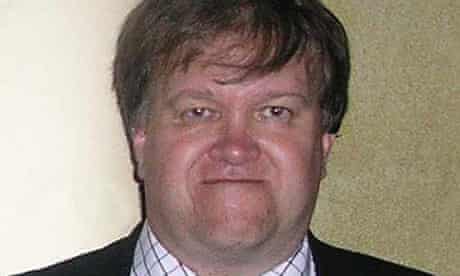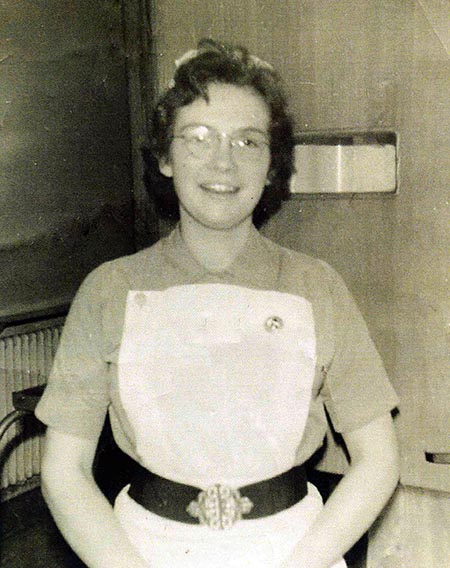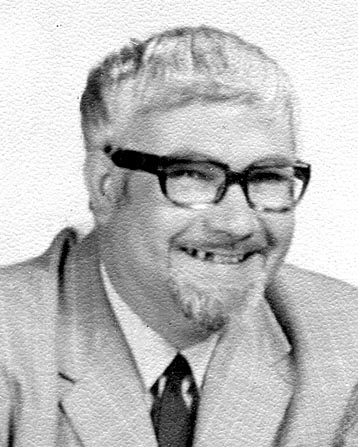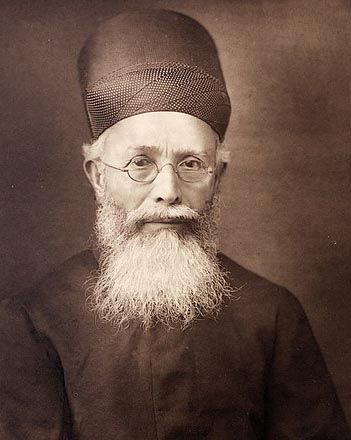by Michael Meadowcroft
 Official portrait of Lord Maclennan Photo: Chris McAndrew, CC BY 3.0 via Wikimedia Commons
Official portrait of Lord Maclennan Photo: Chris McAndrew, CC BY 3.0 via Wikimedia Commons
Robert Maclennan was a politician of exquisite paradoxes: a man of immense principle and steadfastness and yet lacking in political judgement on a great many individual issues. He was a man who had a deep appreciation for the fine arts and for music and yet he gave the appearance of stern aloofness. He was manifestly shy and was nervous about difficult speeches but his commitment to deeply held beliefs forced him to step forward. He was possessed of a deep sense of duty which impelled him into politics; but, in reality, he was never a natural politician. Even the fact of being known to most friends and colleagues as 'Bob' was slightly curious - his serious demeanour and his lawyer's forensic approach would more naturally have suggested 'Robert'. The final paradox was that having defeated George Mackie, the sitting Liberal MP for Caithness & Sunderland,1 in a hard-fought campaign, by the slender majority of just sixty-four votes in 1966, the two became friends and allies, particularly as Liberal Democrat colleagues in the House of Lords.
To his family, friends and those who worked for him, Bob Maclennan was clearly a warm and personable individual, and all the personal comments following his death bear this out. It is when one has to assess him as a politician, particularly in that highly fraught period following the 1987 general election, that the difficulties arise.
The Butler and King book on the 1966 election2 described Bob Maclennan as the ideal Labour candidate for the massive and sprawling constituency of Caithness and Sutherland. In addition to Maclennan's appeal to the Scottish respect for lawyers,3 his father was a respected and titled gynaecologist and the family had an association with the little Sutherland village of Rogart. He was helped by the development of the Dounreay nuclear power station in the constituency which produced an influx of working men more inclined to vote Labour. He later remarked to a colleague that had he not won in 1966 he would have given up the idea of a political career.
Within a year he had gained the first step in a parliamentary career by becoming parliamentary private secretary to George Thomson, Commonwealth Secretary, followed by two junior ministerial posts. He was a consistent and committed supporter of British entry into the European Common Market (the European Economic Community (EEC)), later the European Union, and was one of the sixty-nine pro-Europe rebel Labour MPs, led by Roy Jenkins, who in 1971 voted for Edward Heath's paving bill to join the EEC, against the Labour whip. At the time he was committed to remaining within the Labour Party and hoped that Roy Jenkins would gain the leadership. In 1973, Dick Taverne, Labour MP for Lincoln, had finally made up his mind to resign from the party and to force a by-election (which he won) but he states that, at the last minute, Bob Maclennan 'came perhaps nearest of anyone to shaking my determination, with his quiet but forceful arguments'.4
In 1979, after Labour's defeat in the general election - as the party continued its slide to the left and the efforts to manipulate the rules for the election of the party leader - Maclennan was an early supporter of Jenkins' moves to set up what became the Social Democratic Party, although he did make an approach to join the Liberal Party, being 'strongly discouraged' by David Steel.5 Although, according to David Owen he vacillated over leaving Labour, he was one of the first tranche of Labour MPs to join the SDP on its formation in 1981 and was on its steering committee.6 He was the chief architect, together with William Goodhart, of the SDP's constitution, skilfully drafted to maintain a balance between the rights of MPs and of party members. Many features of the SDP constitution - some may say too many - were imported into the Liberal Democrats' constitution seven years later.
He easily held his seat at both the 1983 and 1987 elections and played an active role in parliament as an SDP and an Alliance spokesman; but it was in the struggles over the creation of the merger between the SDP and the Liberal Party, following the 1987 election, that Maclennan demonstrated the personal and political dilemmas that manifested the different aspects of a tortured personality, torn between a duty to his party and a need to follow his conscience. In effect he went from being the SDP MP most opposed to merger - even including David Owen - to being the party leader who, in effect, forced it through.
David Owen's relationship with Roy Jenkins, Shirley Williams and Bill Rodgers - his three colleagues in the SDP's Gang of Four- was always fraught, largely because Owen believed that the party should have a distinct focus and thus lead the political agenda, whereas the other three saw that the only way to change politics was to work closely with the Liberals. As leader throughout the 1983-87 parliament, Owen single-handedly drove the party with remarkable energy and attention to detail; however, following the disappointing result of the 1987 election, Owen regarded David Steel's attempt to bounce the two parties into a single, merged entity as unacceptable. With his parliamentary colleagues John Cartwright and Rosie Barnes, he set about ensuring that the SDP would stay out of the merger even though the vote of SDP members over the summer had favoured merger, and resigned as leader in August after the result of the vote was declared. He encouraged the SDP to split so that those who favoured merger with the Liberals could do so, while those who, like Owen, wished to have a separate SDP still had a political home. This left just two SDP MPs, Charles Kennedy, who favoured merger, and Bob Maclennan - who had opposed it but accepted the party vote - out of his calculations. Owen calculated that, as the SDP constitution laid down that the party leader had to be a member of parliament, neither of them would take this on, thus leaving him a clear run. However, Charles Kennedy urged Maclennan to take on the role. He agreed and, after the Liberal Assembly had agreed to the principle of merger in September, opened negotiations over the form of the new party.
Maclennan was seen by everyone as a committed opponent of merger with the Liberal Party. David Owen saw him as 'robustly opposed to merger' and states that Maclennan told him that he 'would leave politics rather than join a merged party'.7 Crewe and King in their definitive book on the SDP describe Maclennan as 'speaking out more vigorously against merger than anyone else.'8 What turned Maclennan into the leader determined to create a merged party - as far as possible akin to an 'SDP Mark 2'? First, it was, typically, a matter of conscience and loyalty to accept the party's vote and to take on its mandate; but, secondly, and much more significantly, it became increasingly apparent that his aim was to produce from the negotiations a party that would be sufficiently aligned to David Owen's well-known blueprint for the SDP as to bring him back into the mainstream and thus enable the third force to succeed. This personal Maclennan crusade was not apparent to the negotiating teams at the beginning and, in fact, it only began to dawn on the Liberals when the SDP were insisting that the inclusion of a commitment to the UK's membership of NATO had to be included in the new party's constitution, which would itself be modelled on the SDP's original version, as largely drawn up by Maclennan. His aim was exposed publicly in the evening of 18 January 1988, immediately after the successful conclusion of three and a half months of negotiations, by his capricious and perverse sudden expedition - accompanied by the hapless Charles Kennedy - to Owen's home to beg Owen to join the new party. If he had had even a modicum of political judgement, he would have known that this was bound to be a fruitless mission that would humiliate him and his cause.
Maclennan was completely unsuited to the rough and tumble of leadership and the unremitting demands it made for immediate comment and for maintaining a semblance of unity amongst unruly and unhappy colleagues. And the need to lead the SDP team in the inevitably incendiary and perilous merger negotiations with the Liberals multiplied his problems. Comments at the time and subsequently were unkind but accurate. Alan Beith described him as 'an awkward speaker, not an obvious leader, and a difficult and strangely emotional negotiator.'9 Shirley Williams said that he was 'thin skinned … not cut out for the sour and savage politics of the 1980s.'10 David Steel was more diplomatic, saying that he 'belonged to a more genteel era.'11 Des Wilson was typically forthright: 'The SDP elected Robert Maclennan as their leader, a bizarre choice … an uptight, tortured-looking character, [who] had no leadership qualities whatsoever.'12 At the end of it all, David Owen commented, 'the embarrassment of Bob's leadership [is] mercifully over.'13
Maclennan's behaviour during the almost four months of negotiation was sometimes very strange and occasionally bizarre. He swung between giving ultimatums and suddenly giving way. There were even genuine concerns about his mental stability. When the former MP John Grant resigned from the SDP negotiating team late in the process, saying that there was 'no meeting of hearts and minds',14 Maclennan broke down in tears and said, 'I can't go on.' He then walked out slowly, followed one by one by the rest of his stunned team.
When the constitutional details were completed, including the controversial preamble, NATO and all, there remained the question of a joint policy statement as a key accompaniment, which had, in effect, lain on the table during the long negotiations on everything else. The Liberals were relaxed about this, delegating it to the two leaders, believing, with the experience of the joint 1987 election manifesto, that an acceptable document could be put together swiftly with a consensus of the negotiators on board. This proved to be exceptionally naive. Maclennan laid great store by this document, which he saw as the means of setting out an Owenite prospectus that would draw Owen into the party. Two aides were tasked with writing a forthright policy statement. They consulted widely and, at this point no alarm bells rang to disabuse the Liberals from believing that the outcome would be broadly acceptable. In any case, David Steel would have to sign it off and would thus prevent anything unacceptable appearing. This view did not take into account Steel's notorious antipathy to giving detailed attention to lengthy policy papers and the final document was thus essentially a Maclennan draft. Once key Liberals had seen it, they immediately realised that much of it was completely unacceptable, including a hawkish defence policy, the extension of VAT to children's clothing and support for civil nuclear power.
Maclennan refused to accept this and insisted that it had to go forward, making various threats, including that he would present it alone. Eventually he was forced to realise that his document was not acceptable, whereupon he collapsed into tears and had to be physically prevented from leaving the meeting. It took Charles Kennedy twenty minutes to calm him down in a quiet corner of the room and to persuade him that another document could be quickly written that would keep merger on track. Three senior members from each side produced a somewhat more anodyne version, and thus the whole process to form the merged party was finally signed off - and Maclennan called John Grant to ask him set up an immediate meeting with David Owen. Grant got the impression from Maclennan that he was about to reject the whole package and duly briefed Owen along this line. To Owen's astonishment, Maclennan's mission was to commend the package to Owen and to invite him to sign on to it. After a few brief minutes Maclennan and Kennedy were shown the door and a furious Owen immediately briefed the press on what had transpired, saying that the visit 'reeked of insincerity'. Owen believed that Maclennan was close to a nervous breakdown.15
The merger was concluded with votes of both parties in January and February, and the Social & Liberal Democrats was formally launched on 3 March 1988. Maclennan announced that he did not intend to be a candidate for the leadership of the new party and became a loyal supporter of Paddy Ashdown. He embarked on a much more congenial and productive role in parliament and in the party. He was elected as party president in 1994 and was a key figure in the development and success of the party in the country. In parliament he became the party's spokesman on the arts and on home and constitutional affairs - both subjects on which he had personal interests and practical views. Above all, Ashdown used Maclennan for what was one of the very few benefits that came out of his relationship with Tony Blair. He was appointed to work with Robin Cook on constitutional reform proposals. These were launched in March 1997 and included freedom of information legislation, devolution to Scotland and Wales (with proportional representation elections), an elected authority for London, removal of the hereditary peers from the House of Lords, proportional representation for the European Parliament elections, and a referendum on voting reform for Westminster elections.16 Most of these were enacted after Labour's victory in 1997, and Maclennan joined the Joint Cabinet Committee reviewing a range of constitutional items.
Bob Maclennan retired from the House of Commons in 2001 after thirty-five years as the MP for his huge Highlands constituency. It was a tribute to his relationship with his constituents that he was elected under three different political labels. He was immediately created a Liberal Democrat life peer and continued to use his interests and experience in European matters.
The trials and tribulations he suffered in the later years of the SDP were certainly uncongenial for such a thoughtful and gentle man, but they stemmed directly from his sense of duty. A senior party officer shrewdly said of him that 'his career has often been more successful than visible' and that he was 'more of a renaissance man than a career politician.'17 Shirley Williams described him as 'a serious man and an extraordinarily conscientious one.'18
His last years were blighted by dementia but he will be remembered as a friendly, intelligent and sensitive colleague and friend.
Robert Adam Ross Maclennan, Lord Maclennan of Rogart, born 26 June 1936, died 18 January 2020. Married 1968 Helen Noyes (née Cutter) who survives him, as do their children, Adam and Ruth, and a stepson, Nicholas.
1 The constituency had been held from 1922 to 1945 by the former Liberal leader, Sir Archibald Sinclair, later Lord Thurso, and was held following Maclennan's retirement in 2001 through to 2015 by John Thurso, the grandson of Archibald Sinclair.
2 D. E. Butler and Anthony King, The British General Election of 1966 (Macmillan, 1966), article on the constituency by Ian Grimble.
3 He had been called to the Bar, Gray's Inn, in 1962.
4 Dick Taverne, The Future of the Left: Lincoln and After (Jonathan Cape, 1974), p. 84.
5 David Torrance, David Steel: Rising Hope to Elder Statesman (Biteback, 2012), p. 136.
6 David Owen, Time to Declare (Joseph, 1991), pp. 203, 472 and 487.
7 Ibid., pp. 709 and 726.
8 Ivor Crewe and Anthony King, SDP: The Birth, Life and Death of the Social Democratic Party (OUP, 1995), p. 388.
9 Alan Beith, Alan Beith: A View from the North (Northumbria University Press, 2008), p. 114.
10 Shirley Williams, Climbing the Bookshelves (Virago, 2009), p. 316.
11 Torrance, David Steel , p. 236.
12 Des Wilson, Memoirs of a Minor Public Figure (Quartet Books, 2013), p. 248.
13 Owen, Time to Declare , p. 736.
14 Rachael Pitchford and Tony Greaves, Merger - The Inside Story (Liberal Renewal, 1989), p. 95.
15 Owen, Time to Declare , p. 738.
16 Robin Cook and Robert Maclennan, Looking Back, Looking Forward: The Cook-Maclennan Agreement on Constitutional Reform, Eight Years On (New Politics Network, 2005).
17 Helen Bailey, entry for Robert Maclennan in Duncan Brack (ed.) Dictionary of Liberal Biography (Politico's Publishing, 1998).
18 Williams, Climbing the Bookshelves, p. 316.
 My long-standing Liberal colleague, Richard Moore, has died at the age of 88. Richard was one of the few remaining party stalwarts from the 1950s whose understanding of Liberalism, added to a determination to promote it, ensured the Liberal party's survival when at times it seemed precarious. He told me that he had attended every Liberal Assembly and Liberal Democrat Conference from 1953 to 2017. His whole working life was occupied with various aspects of Liberalism, domestic or international.
My long-standing Liberal colleague, Richard Moore, has died at the age of 88. Richard was one of the few remaining party stalwarts from the 1950s whose understanding of Liberalism, added to a determination to promote it, ensured the Liberal party's survival when at times it seemed precarious. He told me that he had attended every Liberal Assembly and Liberal Democrat Conference from 1953 to 2017. His whole working life was occupied with various aspects of Liberalism, domestic or international. Colleagues at the National Liberal Club and in the legal profession have been saddened by the sudden death of Trevor Millington. Paradoxically he combined a highly convivial personality with being a very private person. He disliked personal publicity and it was rare for him to divulge details of his background. His friends at the NLC knew him as an enthusiastic member of the Wine Committee, a popular friend and colleague and a loyal supporter of club functions - unless they were "black tie" events which he strongly opposed.
Colleagues at the National Liberal Club and in the legal profession have been saddened by the sudden death of Trevor Millington. Paradoxically he combined a highly convivial personality with being a very private person. He disliked personal publicity and it was rare for him to divulge details of his background. His friends at the NLC knew him as an enthusiastic member of the Wine Committee, a popular friend and colleague and a loyal supporter of club functions - unless they were "black tie" events which he strongly opposed.


 My friend David Morrish, who has died aged 86, was a committed Liberal and local politician. He combined warmth and oratory with a quick smile and a telling anecdote - all delivered in his attractive Devonian burr - which ensured his constant election over 50 years from the same community on the Exeter city council or the Devon county council. David also unsuccessfully contested nine parliamentary elections, plus one European parliament contest.
My friend David Morrish, who has died aged 86, was a committed Liberal and local politician. He combined warmth and oratory with a quick smile and a telling anecdote - all delivered in his attractive Devonian burr - which ensured his constant election over 50 years from the same community on the Exeter city council or the Devon county council. David also unsuccessfully contested nine parliamentary elections, plus one European parliament contest. Mary Ness, a stalwart of the Leeds Library has died aged 87. She joined the Library in 1992 having bought share number 382 in the days when it was still a proprietory library and before it became an open charity in 2008. Mary was a committee member from 1997 and continued as a Trustee of the charity until 2017. She was also one of the select group of library members who made loans to it to assist the purchase of the new building. She was a forthright member of the Library’s book group and was never reticent at expressing her views on books being read, or, indeed, on her fellow members.
Mary Ness, a stalwart of the Leeds Library has died aged 87. She joined the Library in 1992 having bought share number 382 in the days when it was still a proprietory library and before it became an open charity in 2008. Mary was a committee member from 1997 and continued as a Trustee of the charity until 2017. She was also one of the select group of library members who made loans to it to assist the purchase of the new building. She was a forthright member of the Library’s book group and was never reticent at expressing her views on books being read, or, indeed, on her fellow members. Leeds Honorary Alderman Brooke Nelson has died at the age of 84 after a short illness. He served as a Liberal councillor for the Armley ward from 1973 to 1983. He was a member of the Armley Common Rights Trust for some forty years, including serving as its Chairman. He also served for many years as a member of the Civic Arts Guild and the Leeds Children's Holiday Camp management committee.
Leeds Honorary Alderman Brooke Nelson has died at the age of 84 after a short illness. He served as a Liberal councillor for the Armley ward from 1973 to 1983. He was a member of the Armley Common Rights Trust for some forty years, including serving as its Chairman. He also served for many years as a member of the Civic Arts Guild and the Leeds Children's Holiday Camp management committee.

